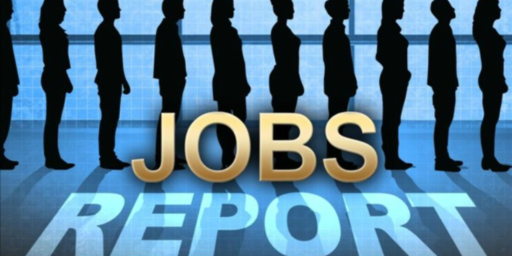Uhhh…What?
Reading James’ post on Greenspan and Reid he linked to Betsy Newmark who wrote,
Do the Democrats really believe that stuff about how Clinton’s tax increase helped bring about the balanced budget? THey need to reread a history of the economy in the 90s and note that the economy started to improve after the Republicans took over control of Congress in 1995, not after Clinton’s 1993 tax increase. Unlike Bush’s 2003 tax cut which almost immediately sparked economic growth, Clinton’s tax increase did no such thing.
Wow. I mean wow. Betsy quick, put a link to the National Bureau of Economic Research on your blog now. The 1990/1991 recession ended in March of 1991 (i.e., Bush was President). Growth was anemic for a period after March of 1991, but growth in for example the payroll job market was starting to heat up in late 1992 and was strong through all of 1993. In 1993 there were 2.483 million payroll jobs added. In 1995 there were 2.154 million. Both numbers are good, but it is hard to dispute that the 1993 numbers are better.
If we look at GDP, GDP grew by 2.7% in 1993 whereas it grew by 2.5% in 1995. Granted in the later years it grew by more, but growth in 1994 was pretty good. Further, the economy grew at a decent clip in 1992, 3.3%.
So this idea that the economy only started to improve after the Republicans took control just doesn’t really sit well with the data. Maybe the Republican control of Congress helped keep the recovery going, and maybe gave it a boost, but that is giving politicians quite a bit of credit, IMO. I think a better explanation is that with a Democrat in the White House and aggressive Republicans in Congress meant that spending was reined in and that coupled with the strong economy, and the tax increase in 1993 a budget surplus resulted. Part of it was luck, part of it was good policy with more emphasis being on the former than the latter. The budge surplus freed up money that would otherwise go to finance the budget deficit and this allowed for more private investment that kept the expansion going and maybe gave it a bit of a boost.
As for Bush’s tax cut, yeah it probably helped, but not much in the labor market. Even today the labor market is still anemic with pretty poor payroll numbers by historical standards. I don’t think Bush is to blame for this, since it looks like the unemployment during the recession was different from past recessions. In past recessions the unemployment was largely cyclical–i.e. these people would be rehired by the firms that laid them off as soon as business picked up again. The last two recessions (and especially the last one) had more structural employment where the jobs are simply eliminated from the economy. This usually results in a longer spell of unemployment.




